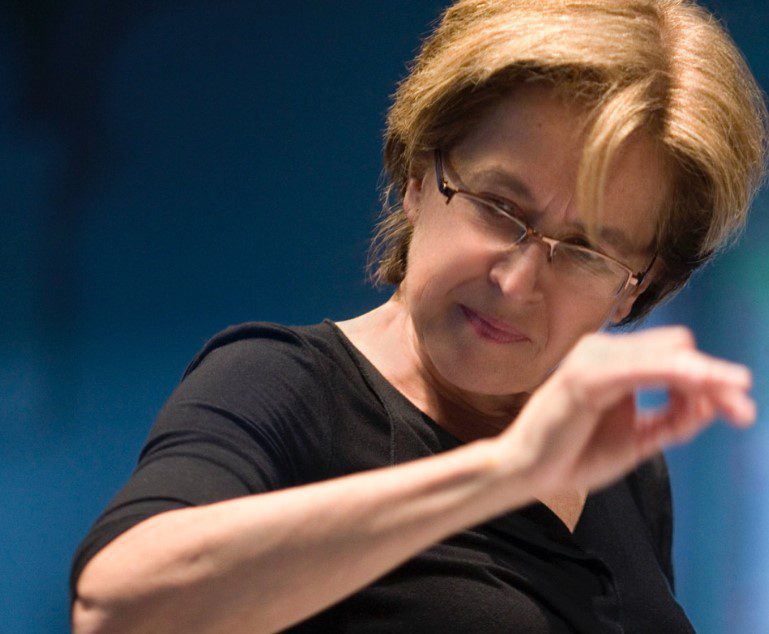Young pianist Felix Hong has been honored several times. In 2016, he was awarded first prize in the Canimex Canadian Music Competition. In 2017, he won the Prix d’Europe and was named to the CBC’s list of the 30 most promising classical musicians under the age of 30.
Born in Taipei, Taiwan, Felix Hong settled in Canada in 2012 to pursue his studies in music at McGill University. Afterwards, he did his master’s degree in London at the Guildhall School of Music and Drama.
For his recital, he intend to perform works by Alexander Scriabin, Nikolai Medtner and Nikolai Kapustin.
PAN M 360 : More precisely, where did your family settle in Canada before you attend McGill University?
FELIX HONG : My family was settled in Montreal before I came to Canada! Prior to attending McGill, I have visited Montreal for a few summers as a child.
PAN M 360 : How came this inspiration for being a professional classical pianist?
FELIX HONG : When I was in high school, I had the opportunity to perform Chopin Piano Concerto No.1 with an orchestra. It is still one of the most memorable experiences on stage as I really felt the connection between me and the music. For quite some time afterwards, my biggest wish was to have the opportunity to play with an orchestra again in my life because I want to relive that moment. It eventually became my motivation to work hard on piano and pursue a career as a professional classical pianist.
PAN M 360 : When did you realize you had this gift to pursue?
FELIX HONG : I realized that I have the gift to pursue when I was able to develop my own interpretations on different works. I also realized that I have the determination to pursue when I can spend hours on the piano exploring different expression that I want to convey in a certain passage of music
PAN M 360 :Who were your key teachers in Canada?
FELIX HONG : I completed my Bachelor degree and Artist Diploma at McGill with Professor Ilya Poletaev. There is always so much knowledge that I can learn from him and his lessons are so inspiring!
PAN M 360 : Why have you chosen to pursue in UK?
FELIX HONG : For my master degree, I also applied to conservatories in the United States. The reason why I ended up choosing UK to study at the Guildhall School of Music & Drama was not only because of my professor Ronan O’Hora, but also the opportunities that Guildhall provides to their students are unmatchable. (such as masterclasses and chamber music studies…etc.)
PAN M 360 : Where are you based now?
FELIX HONG : Currently, I am going back and forth between Montreal and Toronto. Despite being away from time to time, I am still proud to call Montreal my hometown!
PAN M 360 : It’s hard to say from the musician himself but let’s try : how would you describe your pianistic characteristic at this stage of your development?
FELIX HONG : This is indeed a very hard question to answer! Personally, I believe one’s pianistic characteristic can be related (or partially related) to their personalities; since performing is essentially another method to communicate. As I am a rather shy person, I have always naturally felt more comfortable performing lyrical, exquisite pieces. However, I wanted more development in myself to be a more complete artist, thus this year I picked a very challenging Kapustin Sonata to work on, which probably has one of the most virtuosic and flashy last movement I have ever played.
PAN M 360 : What is your quest as an interpret?
FELIX HONG : My quest as an interpret is to ensure that my audiences receive what character am I trying to deliver while I am performing the music. This depends on different works: I could be telling a story, and trying to walk the audiences along as we move into contrasting sections, I could be also simply creating an aura, and bring my audiences into a certain mood.
PAN M 360 : About the program. You’ve chosen Russian (and Russian Ukrainian) composers. So you must have an appeal for them. How did it happen in your artistic life?
FELIX HONG : I have been introduced to Medtner by Ilya during my studies at McGill. I was fascinated by Medtner’s ability in storytelling in his pieces; the way how Medtner’s composition techniques can be so sophisticated, adventurous but keeping everything together tight is just marvelous. On the other hand,
Scriabin has always been one of my favorite composers; studying his music from his earlier periods all the way to “late Scriabin” is quite a journey as we see how Scriabin develops his unique “colors” and gesture of expression. His music in his “mid period” where he was wandering by the boundaries of tonality is exceptionally beautiful.
I actually discovered Kapustin’s music from Youtube’s “Autoplay Next Video”, as one of his concert etudes pops up. Unlike many classical composers who added “jazz elements” into their compositions, Kapustin’s music has a jazz essence, with a classical formation structure. With that, Kapustin maintains jazz harmonies throughout his work, I failed in love studying his music immediately because of the colorful , but at the same time ambiguous harmonies.
PAN M 360 : We have here 2 generations of Russian composers. Can you comment on this choice
FELIX HONG : While Scriabin and Medtner shares relatively more similar style in terms of music in the late romantic period. Kapustin’s music also inherited many Russian music’s texture, for example in his neighboring long linear writing. I made the choice to present 2 generations of Russian composers to showcase how contrasting in musical styles they can be but can also have similar voice and compositional techniques at the same time.
PAN M 360 : Please give us an appeal of each challenge and love for playing those
- The 2 Mélodies oubliées from Medtner – beginning of 20th century:
FELIX HONG : Even though this is probably one of the less complicated Medtner’s sonata, it doesn’t erase the fact that the Sonata Tragica has many virtuosic challenges and the difficulty to present a complete big picture of this work. My love for playing this piece is in the coda: even though technical very demanding but there is nothing more satisfying than playing a coda written by Medtner!
- The 5 préludes and 2 Poèmes from Scriabin – end of 19th century:
FELIX HONG : Out of all the preludes set that Scriabin wrote, the Op.16 set has probably the thinnest texture while reserving a huge amount of emotion. My love for playing Scriabin music is it often has a huge amount of room to make creative rubato and explore different possibilities of voicings.
- The Kapustin Sonata no 1, – end od 20th century, sometimes very close to modern jazz.
FELIX HONG : In Kapustin’s first piano sonata, the most challenging part is to execute the complexity of its rhythm: the upbeat gestures, syncopations and rests are very challenging for a classically trained pianist. I enjoy playing this work a lot not only because jazz harmonies are so satisfying to hear! Jazz music can really help us pianists work with two-hand coordination, and creating different colors.
PAN M 360 : What are the next steps for Felix Hong?
FELIX HONG : In the past two years, I was mainly focusing as a collaborative pianist at McGill. While taking a break this year, I am able to work on more solo repertoire and various projects. I am planning to have a program of more Kapustin’s sonatas ready later in the year, and I can’t wait to present them so that more people can enjoy this classical-jazz amalgamation!
FELIX HONG PERFORMS RUSSIAN MUSIC ON WEDNESDAY, MARCH 15TH, 12 PM, SALLE CLAUDE-LÉVEILLÉE, PLACE DES ARTS. THIS PROGRAM IS PRESENTED BY PRO MUSICA
PROGRAM :
NIKOLAI MEDTNER, Mélodies oubliées, op.39, IV. Canzona Matinata
NIKOLAI MEDTNER, Mélodies oubliées, op.39, V. Sonata Tragica
ALEXANDER SCRIABIN, 5 Préludes, op.16
ALEXANDER SCRIABIN, Deux Poèmes, op.32
NIKOLAI KAPUSTIN, Sonate pour piano no. 1“Sonate fantaisie”, op.39

